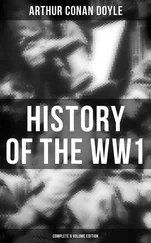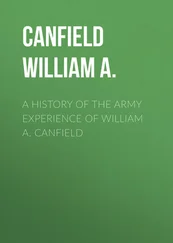1650,
January 8.
June 12.
June 26.
Cromwell was still in full career of victory when the alarming news of a treaty between Charles the Second and the Scots moved the Parliament to recall him to watch over its own safety. He arrived in London on the 1st of June, and was joyfully welcomed not only by Fairfax and the officers of the Army but by all ranks and all classes. It was now almost certain that the Scots would invade England in the King's name, and no time was lost by the Council of State in appointing Fairfax and Cromwell to command the English army in the north. That they would work loyally together in the field no one could doubt; but when the Council consulted the two generals as to plan of campaign, their opinions were found to be diametrically opposed to each other. Cromwell was for taking the bull by the horns and carrying the war into Scotland before the Scots could cross the border; Fairfax, never quite at his ease since the establishment of the Commonwealth, thought such aggressive action unjustifiable. It is impossible to believe that this was his true military opinion, but not all the arguments of the Council nor the pressing entreaty of Cromwell could prevail with him to alter it. Despite all protests he resigned his commission on the plea of physical infirmity, and from this moment passes out of the history of the Army. Never perhaps has that Army possessed a more popular and deservedly popular commander-in-chief.
Only one man could be his successor. On the self-same 26th of June Cromwell received his commission as captain-general and commander-in-chief; and two days later he started on his journey to the north. Charles Fleetwood was his lieutenant-general, John Lambert, an excellent soldier, his major-general; and joined to his staff was another officer whom we saw fighting in the Low Countries many years ago, Colonel George Monk. He had served in the Civil War first with the Royalists, and had been taken prisoner by Fairfax at Nantwich in January 1645; he had then passed some time in confinement in the Tower, and finally had taken service with the Parliament in Ireland, where his merit had attracted the attention of Cromwell. Oliver was now anxious to provide him with a regiment; but the corps which he had designed for him was unwilling to receive a Royalist for colonel. Five companies were therefore taken from Sir Arthur Hazelrigg's regiment at Newcastle and as many more from Colonel Fenwick's at Berwick; and the ten companies were united into Monk's regiment of foot. Thus was formed the oldest of our existing national regiments, the one complete relic of the famous New Model,[178] the one surviving corps which fought under Oliver Cromwell, itself more famous under its later name of the Coldstream Guards.
On the 19th of July Cromwell halted near Berwick, where he mustered sixteen thousand men, a third of them cavalry; and on the 22nd he crossed the Tweed and marched up the coast upon Edinburgh. A fleet on the east coast provided him with supplies as he advanced, which furnishes an interesting precedent for the system that was to be seen later under Wellington in the Peninsula. On the 28th of July he was at Musselburgh, and on the following morning he came in sight of the Scottish army, which was entrenched along the line from Leith to the Canongate.
The Scottish force comprehended a nominal total of twenty-six thousand men, of which eighteen thousand were foot and eight thousand horse. It was under the command, in deed if not in name, of David Leslie, the same excellent officer who had routed the brilliant Montrose at Philiphaugh and had handled his cavalry so efficiently at Marston Moor. His troops however were inferior in quality to the English. It is true that in 1647 the Scotch had followed the example of England in remodelling their army, but the total strength of this force was but five thousand foot and fifteen hundred horse; and this, even supposing the whole of it to have been efficient, was but a small leaven among twenty-six thousand men. Leslie therefore stood carefully on the defensive and resisted all Cromwell's temptations to a pitched battle. After a couple of days Cromwell was compelled to fall back to Musselburgh for supplies. He then determined to march round Edinburgh and push on to Queensferry, where he could regain touch with his fleet on the northern side of the town. Political reasons, however, induced him to linger in the execution of this project; and the delay enabled Leslie to take up a position which rendered it impossible. Unable to force Leslie to an engagement, and not daring to attack him with inferior numbers, Cromwell found himself completely outmanœuvred. Dysentery broke out in the English troops; supplies began to fail; and he was compelled to fall back by Haddington and Musselburgh to his ships at Dunbar. There he arrived on the 1st of September with "a poor, shattered, hungry, discouraged army." The Scots had pressed the pursuit very closely, the rearguard had been constantly engaged, and, most significant of all, the English discipline even under Oliver himself had begun to fail.[179] Having driven his enemy into the peninsula of Dunbar, Leslie sent forward a force to bar a defile on the road to Berwick at Cockburnspath, and cut off his retreat. The situation of the English was desperate, and Cromwell was at his wits' end. His army was reduced by sickness to eleven thousand men, while the Scots still numbered twenty-three thousand; he could expect no relief from Berwick; and Leslie lay in a strong position, from which it was hopeless to attempt to dislodge him, between him and the Tweed.
Sept. 2.
Leslie on his side might well feel confident that he held his enemy in the hollow of his hand. He had but to remain on his hill-side and watch the English army melt away, or wait for the most favourable moment to attack it either in the effort to embark or while struggling through the defile in retreat. He was, however, not his own master, but was controlled by an Aulic Council called the Committee of Estates, which urged him to descend from his weather-beaten position on the hill and move to the ground below, where he would not only find greater convenience of supplies but stand within closer striking distance of his enemy. Down therefore he came, not altogether unwillingly, and took up a new position on a triangle of ground enclosed between the sea, the hill which he had just left, and a small stream called the Broxburn. This stream, which runs at the bottom of a course from forty to fifty feet deep, covered the whole of his front. On his extreme left it runs close under the steep declivity of the hill and forms with it, so to speak, the apex of the triangle; but further down it quits the slope and takes its own course to the sea, leaving plenty of space between it and the hill for a camping-ground. Half-way between the open space and the sea, by the grounds of Broxmouth House, the deep banks of the stream give place, as is usual with such waters, to gentle inclines, not unfavourable to the action of cavalry. This point by Broxmouth House formed Leslie's extreme right. The whole position, as he judged, was not ill suited to a force with great superiority in cavalry. He could post his foot on his centre and on his left behind the deep trench dug by the Broxburn, and mass his horse on the right where it could dash down the gradual incline and across the shallow water without risk or difficulty. By four o'clock in the afternoon of the 2nd of September his new dispositions were complete.
Sept. 3.
Cromwell from the other side of the stream followed every movement with intense attention. At last turning to Lambert he said that he thought the enemy gave him an opportunity. Lambert replied that the very same idea had occurred to him. Monk, who had probably received higher military training than any officer in the army, was next appealed to, and cordially agreed. If Leslie's right, at the base of the triangle, could be turned, the whole of his force must be pent up between the hills and the burn, his horse hurled on to the backs of his foot, and the entire army forced up to the gorge at the apex of the triangle in ever increasing confusion, and, in a word, lost. The time of attack was fixed for the morrow before dawn, and the details of the English dispositions were entrusted to Lambert.
Читать дальше












